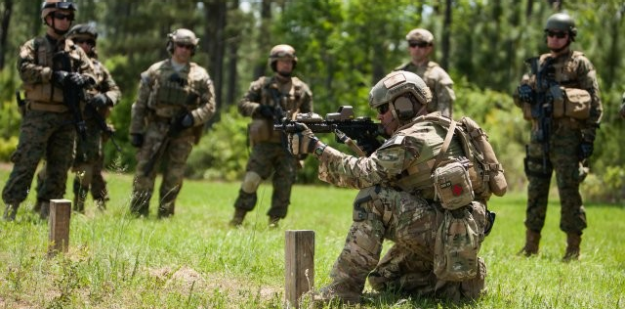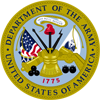 Prev - 18A Prev - 18A | Combat | End of Category |
Special Forces Weapons Sergeant - 18B

- Active/Reserve:Active Duty
- Officer/Enlisted:Enlisted
- Restrictions:None
Special forces weapons sergeants are the weapons specialists. They're capable of operating and maintaining a wide variety of U.S., allied and other foreign weaponry.
Go behind enemy lines to recruit, train and equip friendly forces for guerrilla raidsCarry out demolition raids against enemy military targetsEmploy warfare tactics and techniques in infantry operationsMaintain proficiency with all foreign highdensity light and heavy weaponsRead, interpret and prepare combat orders
Special operations forces have very demanding physical requirements. Good eyesight, night vision and physical conditioning are required to reach mission objectives via parachute, land or water. Excellent hand-eye coordination is also required to detonate or deactivate explosives. In most instances, special forces weapons sergeants are required to be qualified divers, parachutists and endurance runners.Those who want to serve must first take the Armed Services Vocational Aptitude Battery, a series of tests that helps you better understand your strengths and identify which Army jobs are best for you.
Due to the wide variety of missions, special operations weapons sergeants are trained swimmers, paratroopers and survival experts, as well as trained in many forms of combat. Training for the special forces weapons sergeant consists of 43 weeks of formal classroom training and practice exercises. Some of the skills you'll learn are:
Physical conditioning, parachuting, swimming and scuba divingUsing land warfare weapons and communications devicesHandling and using explosivesBomb and mine disposal
Ability to work as a team memberReadiness to accept a challenge and face dangerAbility to stay in top physical conditionInterest in weapons and artilleryAbility to remain calm in stressful situations
The Armed Services Vocational Aptitude Battery (ASVAB) is an examination that is administered by the United States Military Entrance Processing Command. It is used to determine qualification and helps predict future academic and occupational success in the military.
No ASVAB
Total compensation includes housing, medical, food, special pay, and vacation time.
See the whole list of Army Occupational Specialties here
To learn more about the Army's rank structure, see our complete list of Army ranks.
To see a list of military medals and decorations that can be earned by servicemembers in the Army and other branches of the military, see our list of military decorations and medals.








































































































































